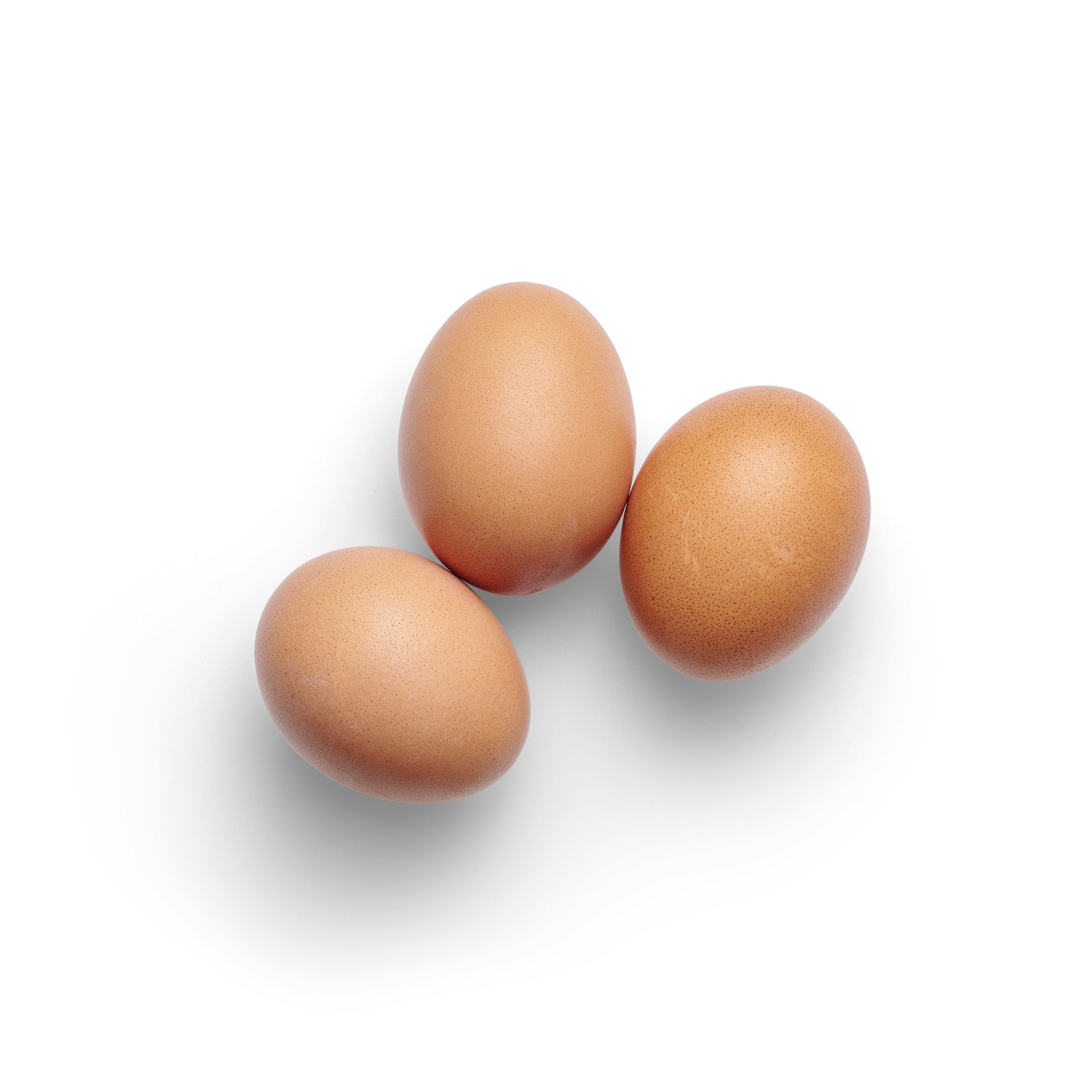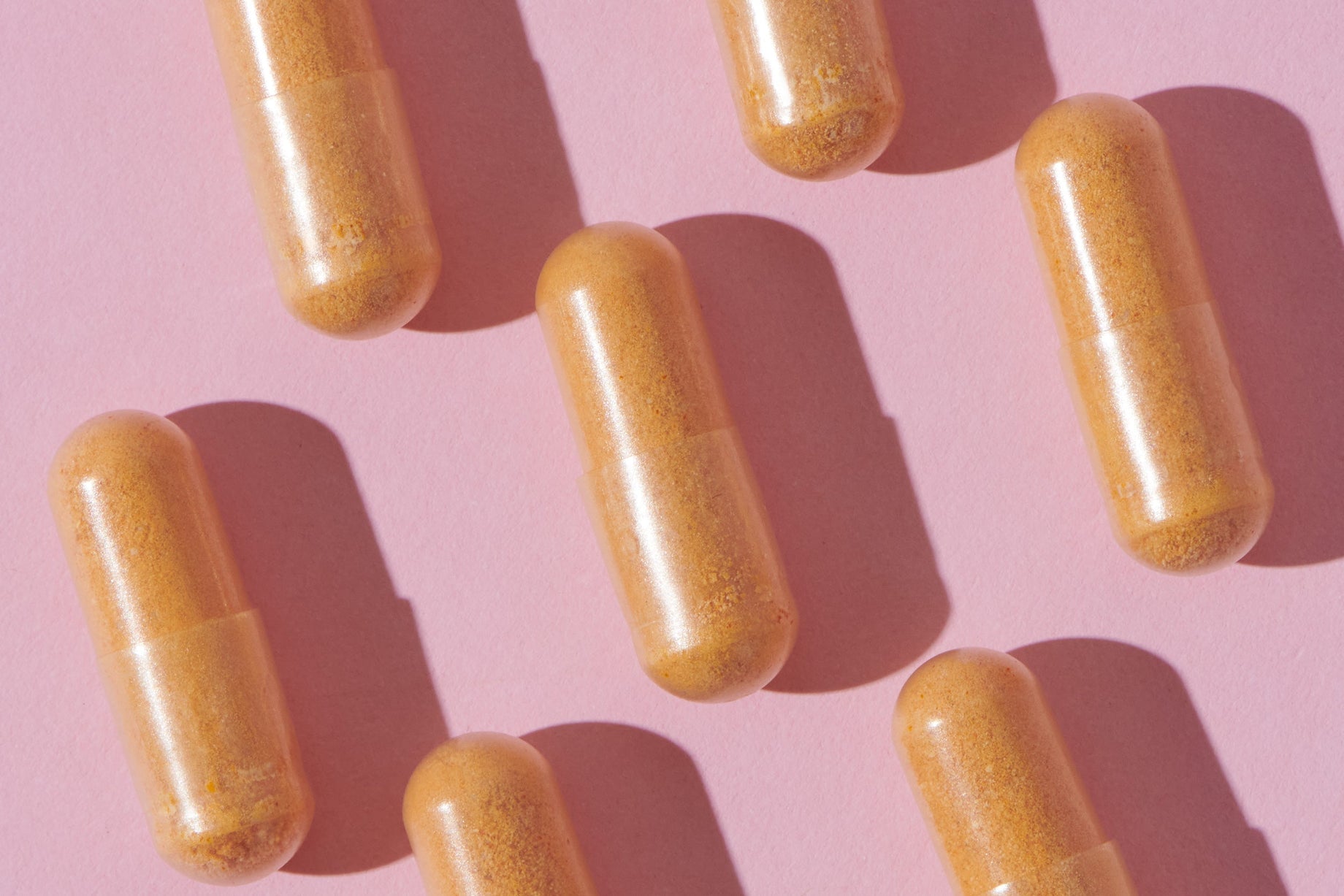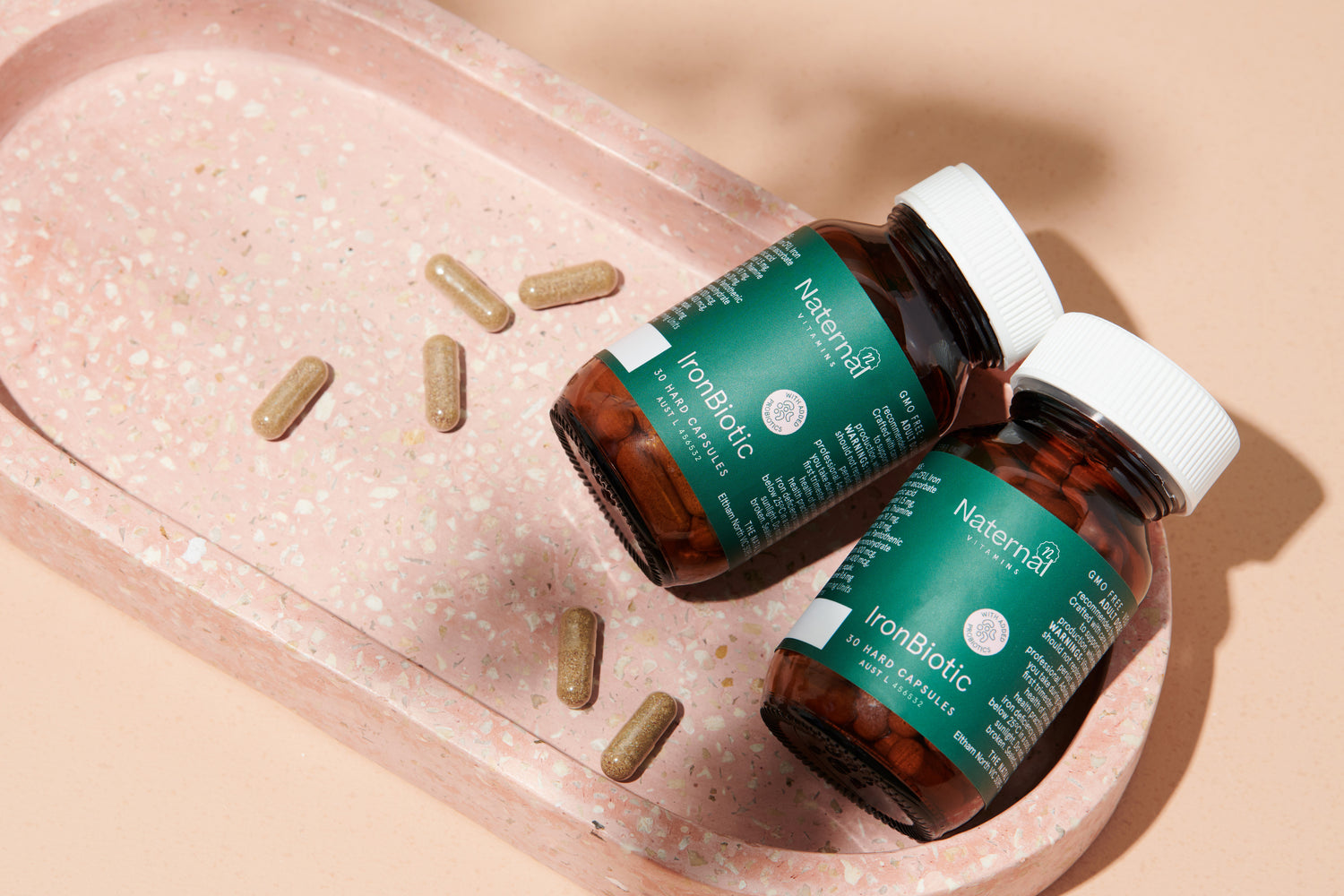Jump to:
In this episode I go through why I don't believe TSH is enough when we are considering someone's thyroid function, what TSH is, what it does, how there have been calls to lower the upper TSH limit, why we need to see T4 and T3 levels to understand your thyroid, and how the meds even came up with the TSH reference range.
Here is my 'Underactive Thyroid Webinar' that I mention in this episode; it's so comprehensive and you'll walk away with a clear picture of how to treat your thyroid and the exact supplement and lifestyle regime you need.
TRANSCRIPT
Melanie (00:00.898)
Hello, hello and welcome to episode 23 of the Natal Naturopath podcast. I'm your host Melanie and today I'm gonna be talking all about TSH and how I believe TSH to be a pretty poor representation of thyroid health and how I view testing TSH alone as not enough for testing thyroid health. So.
Melanie (00:29.042)
I really do not like to just see TSH as a clinician. I always want to see the full thyroid panel. So that's TSH plus T4 and T3, which are the thyroid hormones and thyroid antibodies. Now, why is this? Why do I not wanna just see TSH? So what I'll talk through now is what is TSH?
Melanie (00:57.962)
what's happening, what's it doing, so that you can understand why it's not maybe the best option to be checking. I'm gonna start off with first of all, talking about reference ranges. So if we talk about reference ranges of TSH, you'll see on a blood test when you've had one, there's a set reference range that the lab goes by, it changes lab to lab, but it's gonna be pretty consistent in Australia.
Melanie (01:26.402)
where the upper limit of normal is around five. There has been investigations done, research studies, clinical trials done, talking about should they be lowering the upper limit of normal for serum TSH level. It hasn't been done recently, even though there has been this discussion. So...
Melanie (01:50.63)
Unfortunately, whenever it's come out, whenever there's been a paper or discussion about lowering the limit, it's been met with really heavy criticism. And it just doesn't happen. I would love to see the reference range lowered and I'll explain why. So if you get your TSH tested, I'm going to say most of the time in Australia, your GP.
Melanie (02:18.226)
will not action further investigations or treatment unless your TSH is above that upper limit and it's normally five. So if you're between like 0.5 or 0.3 to five, that's going to be it and your GP will normally say to you your blood tests are fine.
Melanie (02:48.258)
However, ask any clinician the amount of times I've seen someone with normal TSH, normal, and I'm doing in inverted commas in the air because when I say normal, I'm just saying it's normal for the lab. It's within that range. I don't think it's optimal and we're gonna talk about what optimal looks like, but I've seen countless women.
Melanie (03:13.542)
where their TSH is within range, but it's on that higher end. So it's three, 3.5, four, even like 2.5. And then we go and investigate a full thyroid panel. And lo and behold, honestly, so many people come back with abnormal T4, abnormal T3 or thyroid antibodies. And
Melanie (03:39.458)
this comes with symptoms as well. So I'm not just talking about someone that feels amazing and then comes up with high TSH. I mean, I'm investigating their thyroid for a reason, because these clients have a whole host of symptoms that are not explained by anything else. And they're ticking all the boxes for thyroid disease. So the concentration of TSH is affected
Melanie (04:09.206)
as well as thyroid factors, of course. But I remember when I was at uni, I was getting so lost in like, right, what does high TSH mean? What does low TSH mean? Like it is really confusing. And I like to be very simple in the podcast. So I'm hoping that what I'm gonna explain is easy to digest. TSH is known as thyroid stimulating hormone. Now it is made by your pituitary gland in your brain.
Melanie (04:35.218)
And what its main job is, is to stimulate your thyroid to produce, sorry, to produce enough T4 that is enough for your body so that your thyroid function is good and your endocrine functioning is working really well. Now, TSH, generally, it will go up a bit higher if your brain has noticed your thyroid isn't working very well. So you'll tend to see.
Melanie (05:05.29)
a pattern of higher TSH on the reference range that will normally correlate to a under-functioning thyroid because the pituitary gland has noticed, hmm, the thyroid's not working really well. Let's send more TSH to stimulate it further so that it makes more T4. And on the flip side, low TSH can be associated
Melanie (05:31.07)
or normally is associated with a over-functioning thyroid because your pituitary gland has noticed, it's continuously checking in with a feedback loop to your thyroid, it's noticed it's over-functioning, so it's speeding up too fast. So then the TSH value will drop lower to stop that stimulation. Okay, so that's the pattern, although I've seen clients where their TSH is really low, but their thyroid is also really low.
Melanie (06:00.542)
And so this is what I'm preaching is that we need to check all the thyroid markers so that we can actually see what's happening. Because if I had a patient that had a TSH of 0.5, right, or 0.4, that's quite low. And so if we just went by the standard, I would be like, oh, well, their thyroid's overactive, done and dusted. They need, they need to go to their GP for overactive thyroid, hyperthyroidism.
Melanie (06:30.23)
This is not always the case. That's why we checked T4 and T3 because their thyroid might be totally fine. Or it might be actually really sluggish. And I've seen that happen. So the concentration of TSH is affected by a number of non-thyroid factors. So we do need to consider that when we're looking at TSH, it doesn't always mean it's so black and white. So things that can affect your TSH levels, uh, your thyroid function. Number one.
Melanie (06:59.99)
But let's move on from that and let's talk about other things that could, um, could play a role. Pregnancy, pregnancy, your TSH will normally go up. Age, your gender, exercise levels, the timing of the last dose of thyroxine you might've had if you're on thyroxine, steroids and other medicines. And also TSH may go through seasonal and, um, and daily fluctuations as well. So,
Melanie (07:28.038)
It is a tricky one and that's why I don't like to place 100% of my value on TSH because there is that fluctuation and it can change depending on certain things. Other factors that influence TSH is iodine deficiency and also stress. Cortisol going to impact your TSH significantly. So lowering the upper limit of normal for TSH has been proposed from five down to three or even five down to 2.5.
Melanie (07:57.926)
um, on a blood test. So that's M I U slash L, but that those have never gone anywhere. So it's not actually happened. I would love to see that happen, but it hasn't. The strongest argument the medical professional has in favor of lowering the limit down to like 2.5 or three is that serum TSH levels.
Melanie (08:23.398)
If they are on that upper limit of normal, so if they're 2.53, 3.54, 4.55, that is often very, very associated with high levels of antithyroid antibodies. So if you've got a TSH level between three and five, very, very highly likely there could be antibodies there present.
Melanie (08:47.942)
And there is a higher rate of progression to clinical thyroid disease at that point as well. It's interesting when I was researching this episode, I came across a paper that was saying, looking at reference ranges, when we make a reference range, they are gathering data from everyone in the population. So they're grabbing like a subsection of people, but this subsection of people are very varied. Okay.
Melanie (09:17.39)
So they take in very unwell people, elderly people, all sorts of people in all sorts of health concerns, and then you've got normal people that are very healthy. But these more unwell people or people that might have thyroid disease or antibody levels or anything going on, they're going to throw you the reference range out and skew that. So
Melanie (09:42.582)
This paper said, and I'll link to it in the show notes, it said after exclusion of persons with goiters, thyroid antibodies, and then family history of thyroid disease. So, I eat, we only had people that were not affected by thyroid concerns in that subsection. The mean serum TSH was 1.5. Yet they've
Melanie (10:09.47)
sort of come up with this reference range where the mean is not 1.5, you know. So anyway, what I would like to see in clinic for all my clients is a TSH between 0.5 and two. That to me means everything's okay. But again, I would never say that unless I had fully seen T4 and T3 and thyroid antibodies. I would say, look, your TSH looks good. It's in a good optimal range.
Melanie (10:37.27)
but it's always best if you're symptomatic to be checking further. The argument against lowering the upper limit of normal of TSH values is that a lot more people would be diagnosed with hypothyroidism. And the medical industry says this has no clinical or therapeutic benefit from these extra diagnoses. I tend not to agree with that because that means there is heaps more people that would find out they have a health concern that might.
Melanie (11:06.202)
answer to a lot of their symptoms. But anyway, I'm not sure where they came up with that. But I suppose they're thinking of people that have high TSH and are fine, like they don't have hyperthyroidism. They would then be technically diagnosed with hyperthyroidism, even though they're feeling fine and they're not symptomatic. So that makes sense there. So
Melanie (11:35.058)
It was also saying that yet. So any persons that has TSH level between three and five are much more likely to have antibodies and future thyroid disease. Um, but apparently there's a lack of evidence for benefiting for these people to benefit from thyroxine therapy at these levels, meaning that they're going to be keeping the upper limit of TSH, um, but anyway, between four or five. Okay.
Melanie (11:59.134)
So TSH is stimulating your thyroid. It's talking to your thyroid, telling it to either go slower or faster, depending really on the level of TSH. Now, the analogy that I like to use with TSH is imagine that you want to check on your friend. You're worried about your friend. If you knock on your neighbor's door,
Melanie (12:25.77)
the neighbor next to your friend, sorry, and you ask the neighbor how your friend is, that's the same thing as checking TSH because it is not a direct check on the thyroid, more a check on a hormone that makes up a part of the thyroid function. So a direct checking on your friend would be knocking on her door and directly asking how she is. That's the equivalent of checking.
Melanie (12:53.51)
the thyroid hormones that the thyroid makes is just T4 and T3. So the thyroid makes T4, otherwise known as thyroxine, that is then converted over in the liver to T3 and T3 then exerts its effects upon cells and does all the beautiful thyroid things that the thyroid hormones do like set your metabolism and um and energy and you know so much and activate your muscles. So
Melanie (13:23.19)
I really do prefer to check T4 and T3 for that very reason of that it gives me a direct look at your thyroid. It doesn't give me a roundabout look. So another thing as well is checking on thyroid antibodies. Now not everyone needs to check their thyroid antibodies. I actually have never checked my thyroid antibodies. I don't have the cause for me to warrant it. Out of interest, I might like to go pay and get it privately tested one day. I just haven't.
Melanie (13:52.834)
Those that really should be getting their thyroid antibodies checked is if you have any member of your family with thyroid disease, because thyroid disease is so genetically carried down. So if you have an auntie, cousin, grandma or mother, because it often is the females, I would be checking your thyroid antibodies. I've had so many clients that came back and go, oh my God, I've actually got high thyroid antibodies. I had no idea. I've got a thyroid disease. I've got an autoimmune thyroid disease that could progress.
Melanie (14:22.302)
into full blown thyroid disease. And it's something that you might wanna know because on average, it takes about five years for someone to have high thyroid antibodies for it to then affect their thyroid function. There is a strong, strong correlation between antibodies and future thyroid disease. That's pretty obvious given that the antibodies are directly gonna be attacking your thyroid, making it very hard for your thyroid to function happily. And eventually, your thyroid will drop.
Melanie (14:52.158)
It'll either go too high or too low depending on whether it's, you know, um, turning towards Graves' disease or Hashimoto's. Graves' disease is hyperthyroidism and Hashimoto's is hypothyroidism. So very, very warranted to be checking on your thyroid antibodies. If you have a genetic history in your family, and also if you do have funny TSH levels or funny T4, T3 levels, having a thyroid antibodies checked tells us whether there is an autoimmune factor or not, and then that changes our treatment plan.
Melanie (15:22.434)
Because if you have high thyroid antibodies, we wanna lower them and we want to work on that, even if your thyroid is okay on a blood test. So thyroid reference ranges, if we look at optimal levels, these differ from a lab. Optimal levels is where are you best sitting without symptoms? So T4, we really want that to be between 15 and 20, and we want your T3 to be between five and like 6.2.
Melanie (15:51.454)
Okay. So if your levels are not that on a blood test and it's looking like you have a under functioning thyroid, what you might like to do is pop over to my website. So www.thenadelnatropath.com.au forward slash pages forward slash resources, because on there I have a webinar. So it's an understanding your underactive thyroid webinar. It goes through about an hour.
Melanie (16:17.326)
Now what it is going to be going through is every aspect of how the thyroid works, causes of underactive thyroid, blood testing, all the ideal levels. What does T3, T4, reverse T3 do, all about antibodies, how to lower your antibodies, about gluten free, going gluten free for your thyroid, talking about thyroxine and what thyroxine is doing and not doing.
Melanie (16:40.906)
And then thyroid supplementation, lifestyle factors, how stress is impacting you and all the nutrients you need. And also I go through how to lose weight when you have a thyroid concern, because that is one of the biggest problems for women, is an inability to lose weight when they have an under-functioning thyroid. So that's my episode today. So if you are a bit concerned, what I suggest you do,
Melanie (17:05.746)
is just next time you get a blood test, request your doctor, could you please run T3 and T4? I would like to have a really thorough look at my thyroid and my thyroid antibodies. If they don't want to do that for you, you have two options. You can go on InstantScript. It's a platform in Australia that you can purchase set packs of blood tests for only $20. A GP puts it through Medicare and you're able to get your blood tests. So it's a set packs. You're purchasing the ones you want. It's only $20. It's a really cost effective way.
Melanie (17:35.286)
The other option is iScreen. iScreen is another testing platform in Australia. I personally use it and love it. The reason why I prefer it is because you're not buying set packages. You can do individual blood tests. So you can literally pick and choose the exact ones you want. On Instant Script, you might buy a package and it's missing a couple of things. And then you might have to buy another whole package to cover those ones. So...
Melanie (18:00.586)
I just love ice cream because you can pick and choose which ones you want to get tested. And that is an individual cost per test. So it can get a bit more costly, but I know for a fact like TSHT3 and T4 that is about $70, $80. So it's not too expensive. And at least you have answers with your levels.
Melanie (18:26.874)
And of course, if you ever needed any help with your thyroid, I've got my underactive thyroid webinar, or you can book in with one of our practitioners, myself, Alexis or Bella, we all love treating thyroid disease. Now, if this was helpful today, I would absolutely love it. Love it, love it, love it. If you could please leave me a five star review so that I get in the ears of other women that need the help and maybe share it with a friend, maybe share it with a girlfriend that's been complaining of these symptoms like tiredness, I'm putting on weight, I can't lose weight.
Melanie (18:56.486)
It might be the thing that she needed to go and sort out her health because so many people don't realize that just because your TSH is fine does not mean your T4 and T3 are fine. And that means just because your TSH is fine does not mean your thyroid is fine. And I've had so many people come to me and go, oh my god, if only I had my T4 checked, I wouldn't have been spending years of putting up with these symptoms.
Melanie (19:23.946)
My TSH consistently came back as fine. So my doctor kept telling me of thyroid's fine. Yet I had 10 symptoms of an underactive thyroid and I was convinced about it, but I kept getting told I was fine. And then they come and see someone else or a integrative GP, for example, or a naturopath nutritionist. And those are the clinicians running T4 and T3 in thyroid antibodies. And now behold, we find the problem.
Melanie (19:53.026)
Have a beautiful week and I will see you next week.






